Gut Microbiome Test Medium
We offer two types of tests; Lab Tests and Rapid Tests. This product is under the category Lab Tests. See all our Lab Tests by following the link.
See allWe offer several different options of testing methods. This test is done with Stool. See all tests done with Stool by following the link.
See allGetTested’s Gut Microbiome Test Medium is a gut flora test targeted primarily to problems with obesity, diabetes, inflammatory diseases. It measures 15 bacteria such as Lactobacillus, Bifidobacterium, Akkermansia muciniphila and Faecalibacterium prausnitzii.
- In stock
- At-home tests
- Fast delivery

Get 5% off on 2 Lab tests, and 10% off on 3 Lab tests or more.
Gut Microbiome Medium analyzes the following bacteria:
Gut Microbiome Medium analyzes the following yeast:
About GetTested's Medium Gut Microbiome Test
Discover your gut health intricacies with GetTested's Medium Gut Microbiome Test. This advanced test includes everything from the Small version and adds analysis of two significant bacteria: Faecalibacterium prausnitzii and Akkermansia muciniphila, key to understanding conditions like obesity, type-2 diabetes, and inflammatory bowel diseases.
About the Gut microbiome
The gut microbiome affects the body throughout your life, as it is responsible for digestion of food, the immune system and many other processes in the body.
Bacteria are different in each person’s bowel. Scientists have discovered roughly a thousand different types of bacteria residing in the bowel and each individual has about 160 different types, so every bowel is unique in that way. You will likely have different bacteria in your own bowel than another person does. However, there’s more than just bacteria. Microbes (archaea, viruses, yeast) live in the bowel as well. The small bowel has microbes too, but we have more knowledge on the ones living in the large bowel, since it’s easier to test poo samples.
A large number of scientists are interested in the bacteria inside our guts. Understandably so, since we are now aware that gut bacteria have many vital functions that are responsible for good health. They feed the cells in our bodies and control inflammation. The gut system is similar to our immune system: complex and important in maintaining our well-being. There is a rare possibility that your immune system and the gut bacteria cause diseases, which is why an analysis of your faeces is necessary. You can easily do an analysis by taking a microbiome test and discover what microbes live in your gut.
About the key bacteria: Akkermansia muciniphila and Faecalibacterium prausnitzii
Akkermansia muciniphila is one of the most common types of bacteria. It helps strengthen the gut lining and improve general health of the gut. Because of this, iIt is crucial for managing obesity and type-2 diabetes, impacting intestinal mucosa and inflammation. Akkermansia muciniphila levels are often lower in individuals with obesity, type-2 diabetes, inflammation, or weakened immune systems
Faecalibacterium prausnitzii is crucial in protecting the colon, controlling metabolism and the immune response. It is a major butyric acid producer and is vital for preventing colorectal cancer and IBD, acting as a health bioindicator.
Similarly to Akkermansia muciniphila, Faecalibacterium prausnitzii is usually found in lower levels in intestinal diseases, which serves as a valuable biomarker for gut health.
Understanding Obesity and Intestinal Flora
Research links intestinal flora, particularly Akkermansia muciniphila, to obesity. Various studies have in fact, brought to light the beneficial impact of Akkermansia muciniphila on treating obesity. Akkermanisa reduces the risk of obesity, by reducing body weight.
Transferring gut flora from thin to overweight individuals has shown promising results in weight loss. However, imbalanced gut flora is not the sole cause of obesity; diet, lifestyle, and thyroid issues also play roles.
Who would benefit from this Gut Microbiome Test?
This is the best Gut Microbiome Test for those seeking a deep dive into their gut flora, especially if dealing with obesity, diabetes, or gut-related issues. For a more extensive analysis, consider GetTested's Large or XL Gut Microbiome Tests, which cover additional aspects like digestive function and leaky gut.
How to test gut microbiome: Test Procedure and Options
The Medium Gut Microbiome Test from GetTested is easy to use at home. You receive a kit and can expect digital results. Explore more with our Large and XL tests for comprehensive gut health assessments, including digestive functions and additional biomarkers.
FAQ
How is the Gut Microbiome Medium test carried out?
Who should get a Gut Microbiome Medium test?
Anything to consider before taking the test?
How quickly will I receive my results?
Example Report
Example of Gut Microbiome Test Medium
Reviews
-
happy i did this :) quite easy to use and results in not too long :)
-
The world of probiotics, prebiotics, and gut health has always intrigued me. To gain a deeper understanding of my own body, I opted for the Gut Microbiome Test (Medium) by GetTested. The entire process, from ordering to receiving results, was seamless. When I delved into the results, it was like unlocking a treasure trove of information. The intricacies of my gut's microbiome, the balance, and imbalances, all laid out in a digestible format. Armed with this information, I've embarked on a journey of tailored nutrition and supplements. The subsequent weeks have witnessed a marked improvement in my digestion and overall energy. While there's no one-size-fits-all solution in health, this test provides a custom blueprint that can guide dietary decisions.
Related Products
-
DNA Diet & Nutrition Test
DNA Diet & Nutrition from GetTested is a health test that analyses your genetic v...€ 159,00 Add to cart -
DNA Metabolic Health Test
The GetTested DNA Metabolic Health Test provides you with an in-depth understanding o...€ 149,00 Add to cart -
Thyroid TSH test
Discover if you suffer from an underactive thyroid (hypothyroidism) with our quick Th...€ 19,00 Add to cart
You may also like…
Trusted by over 10.000+ customers


“The home test was straightforward with easy to follow instructions. The test result was detailed and clear in its presentation. Also had the opport...”
Richard

“We looked at a lot of companies offering the same services but made the decision to go forward with get tested because the labs are based here in t...”
Natasha

“There are other providers out there, I have tried 3. Gettested was the fastest and the customer service was the best. I even received my test on th...”
Alan

“Absolutely perfect, results came after few days and finally after a lots of times visited GP, we finally know why my son has eczema - he is allergy...”
E

“I found them to be professional and not too long a wait for results. Helpful with any after questions. Will be using them again if need be. I highl...”
Eileen

“I really value my test and to see the results. It is a jungle when your health is online. So get accurate and precise knowledge is a gift, as it is...”




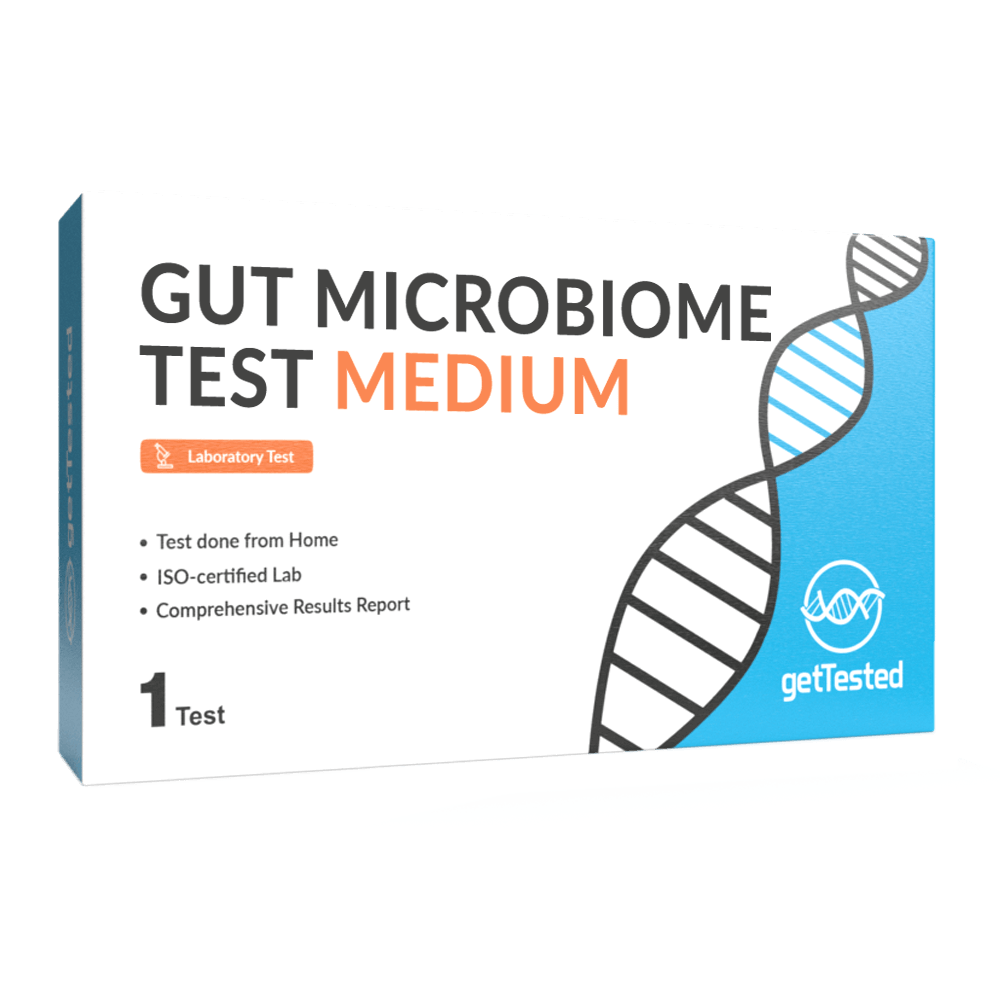

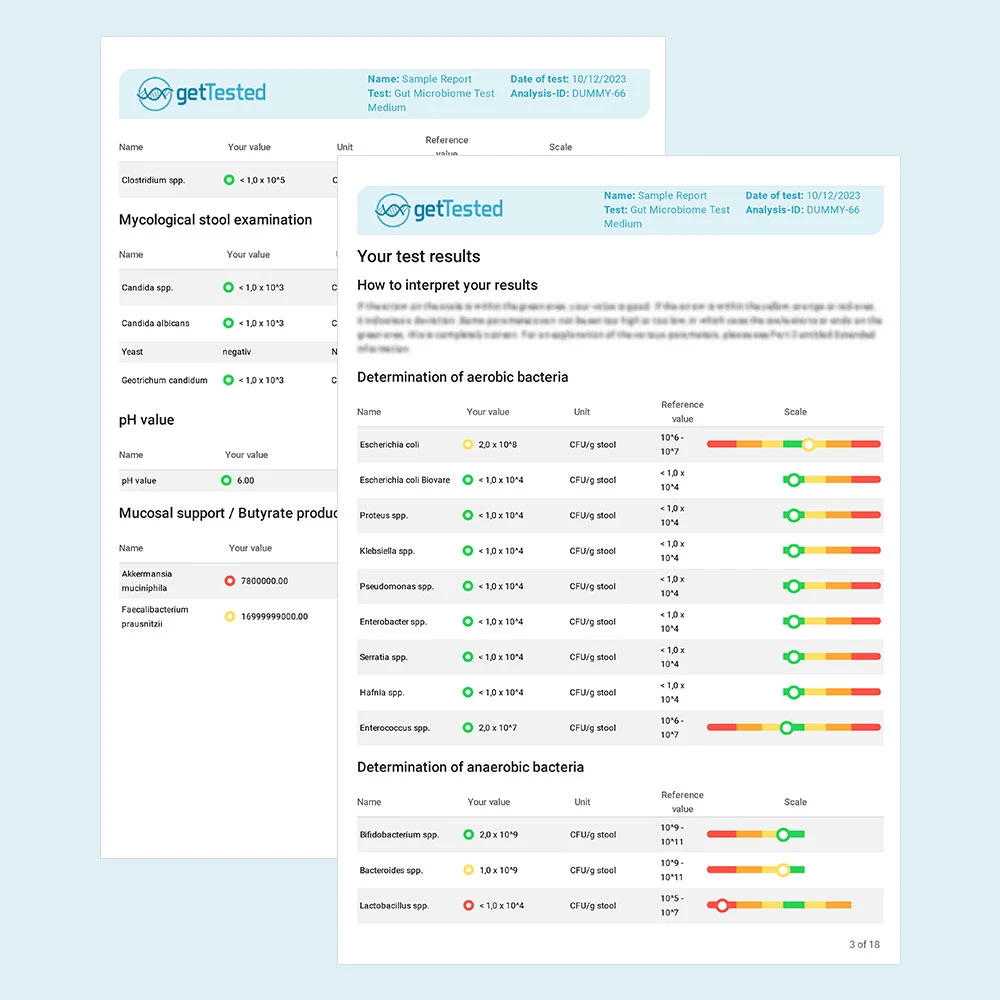
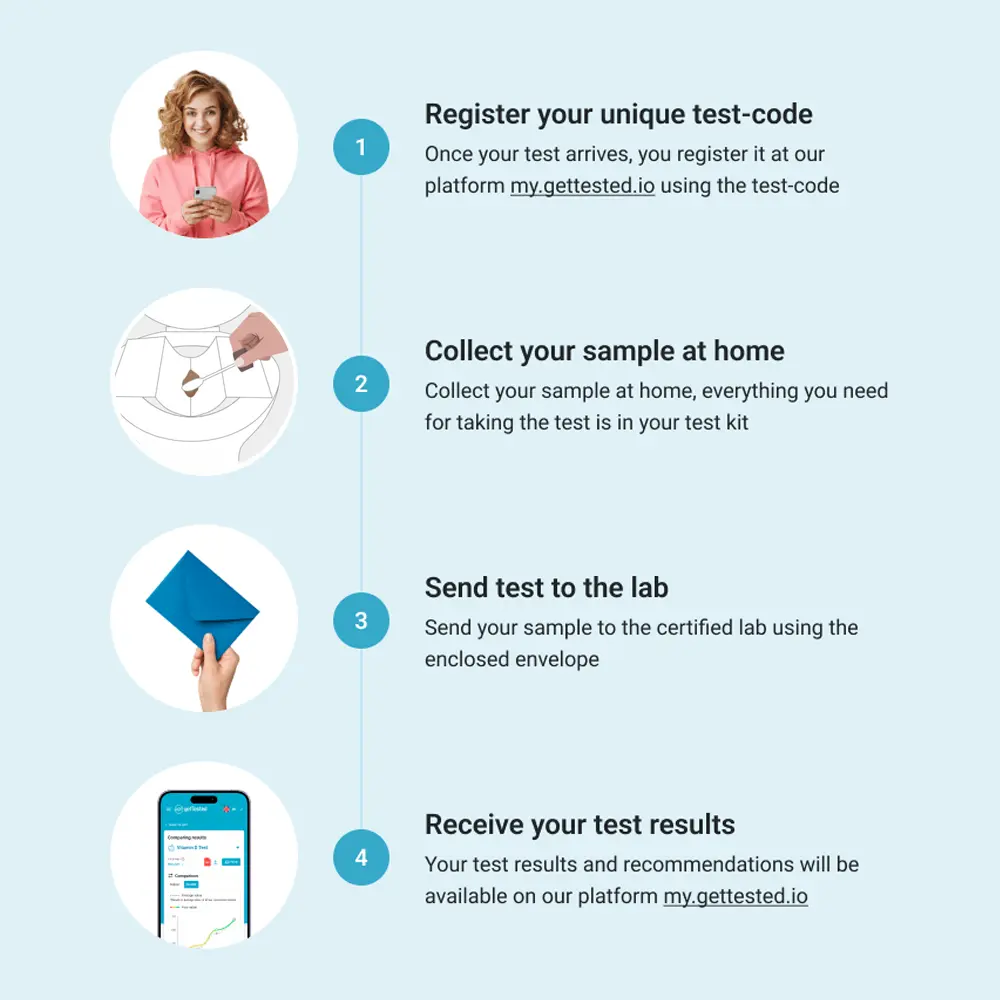
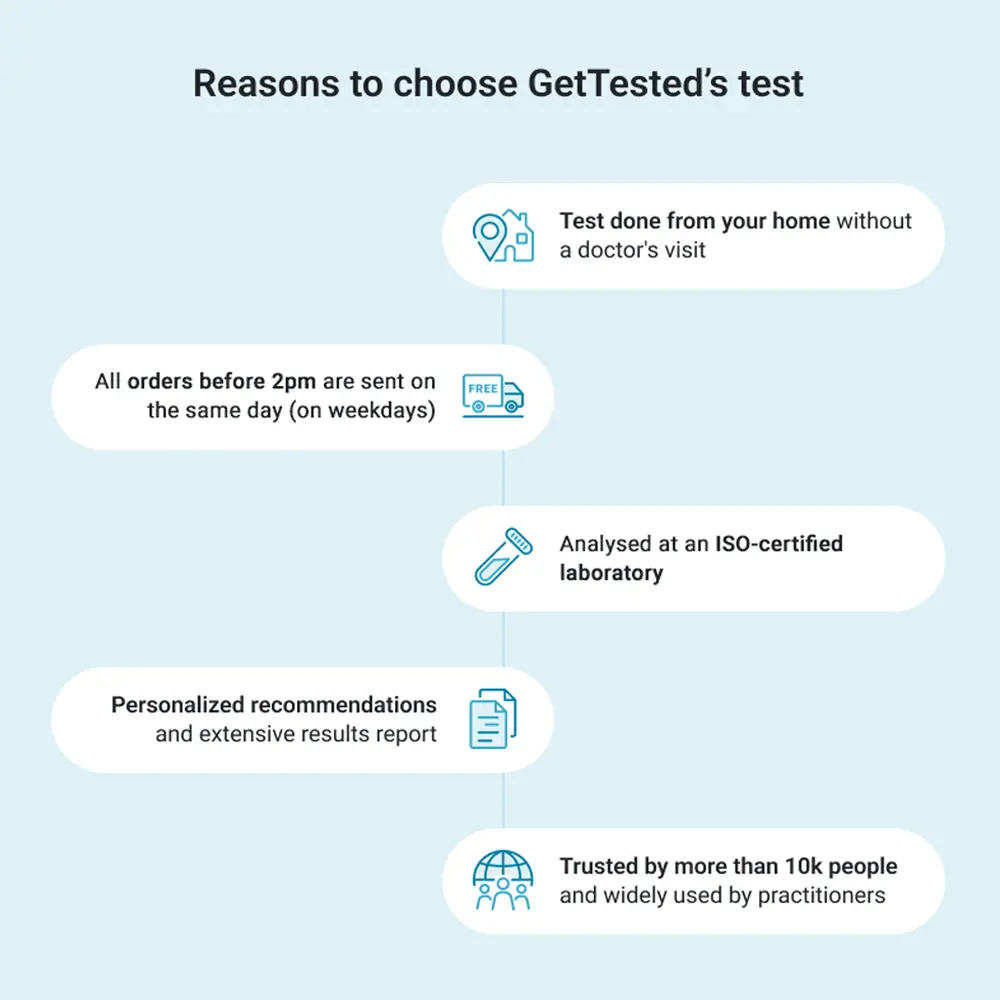
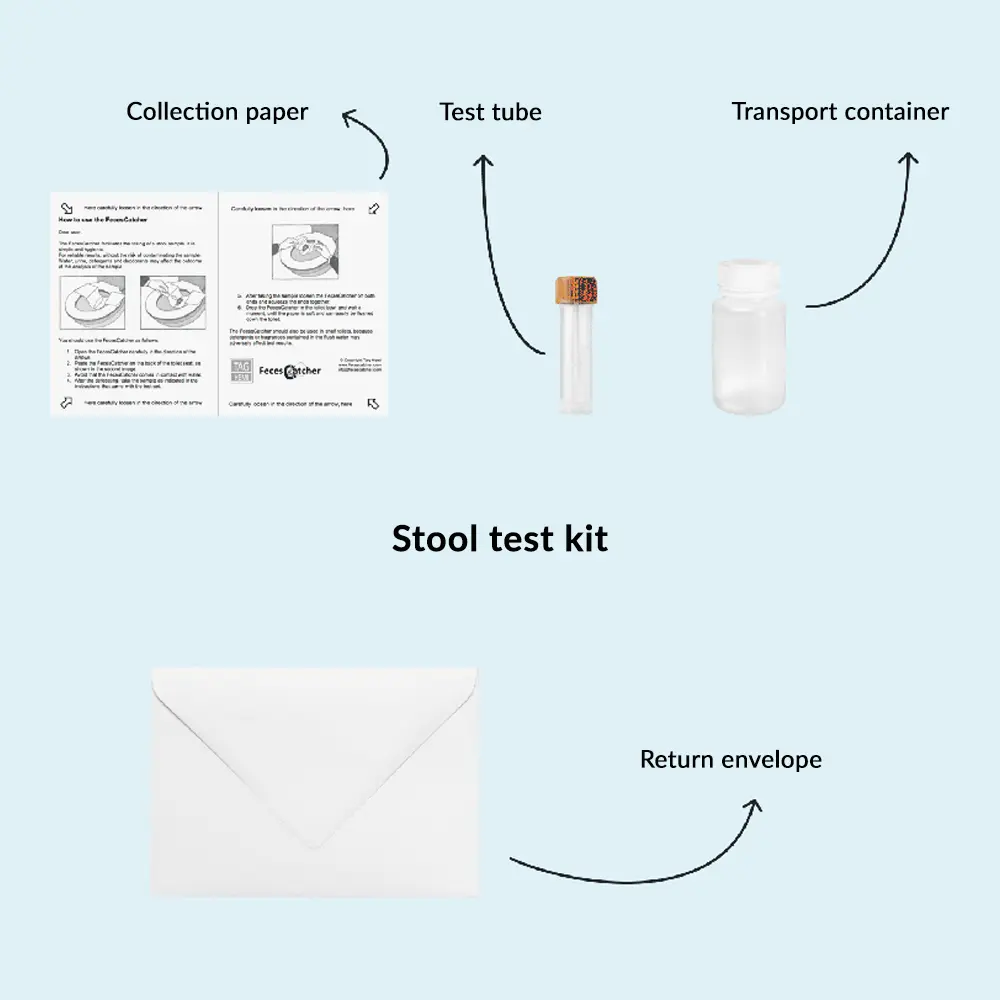


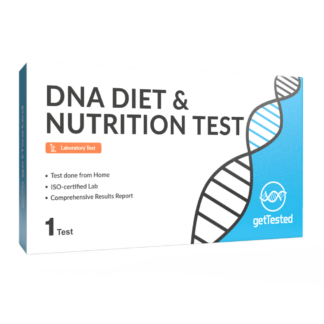
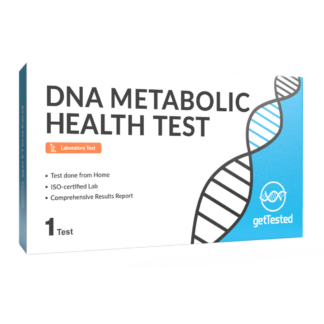
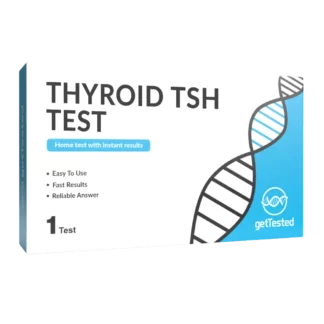
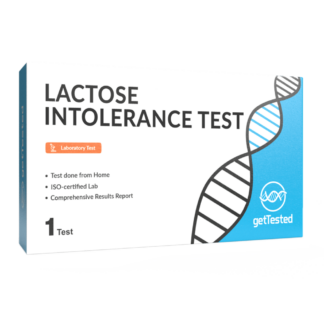
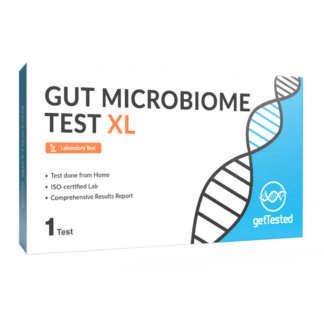

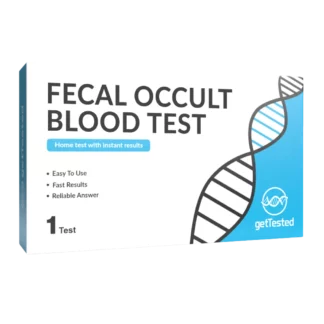












Leave a Reply